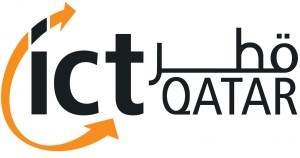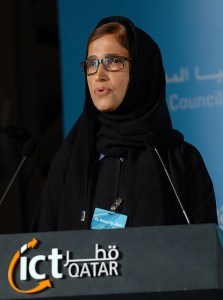 Every Arab citizen should have access to broadband by the year 2015. That is the declaration of Dr. Hessa al-Jaber, secretary general of Qatar’s Supreme Council of Information Technology (ictQATAR), who described broadband as an absolute “citizen right” at the opening of the Connect Arab Summit 2012.
Every Arab citizen should have access to broadband by the year 2015. That is the declaration of Dr. Hessa al-Jaber, secretary general of Qatar’s Supreme Council of Information Technology (ictQATAR), who described broadband as an absolute “citizen right” at the opening of the Connect Arab Summit 2012.
“Our target by 2015 should be that no one is denied access to any form of digital communication, and everyone is part of the connected web regionally and globally,” al-Jaber said, noting the target was consistent with her belief broadband should be considered “the simplest form of digital communications we will accept for our times.”
The Middle East is one of the fastest growing regions for broadband development as Arab governments increasingly deploy technology in an effort to grow the economy in the region. While many oil-producing states have invested the earnings from high oil prices in technological infrastructure, most governments believe the Middle East cannot be economically sustained through the sale of fossil fuels alone. Economic diversification is a key to sustained growth, and al-Jaber explained broadband is an absolutely essential component in those efforts.
“If we want to grow our economies at a pace exceeding 7% year-on-year and over sustained periods so that income and output double every decade, create 75 million jobs by 2020, and create societies that can achieve the level progressiveness that our century demands, then we must be equipped with the digital technologies that will support our march into this prosperous future,” al-Jaber said.
Research obtained by ictQATAR found that just a 10% improvement in digitization can trigger a 0.6% gain in GDP and nearly a 1% decline in unemployment. Broadband can also deliver a marked increase in innovation.
al-Jaber also noted many Arab region countries have made substantial progress in broadband development, some threatening to exceed the broadband rankings of countries in North America and Europe.
But the Internet can also remain a threat to countries in the region that maintain strict control on information and see the Internet as a potential threat.
“We find it disheartening that other Arab nations are severely falling behind in terms of network readiness, even in relation to their economic standing,” al-Jaber said, sidestepping the politically sensitive issue.
Other attendees noted broadband expansion in the region is outpacing that in more developed countries, and could deliver a “game-changer” for the Arab world to leap ahead of countries like the United States and Canada.
Jeffrey Sachs, director of the Earth Institute and a member of the Broadband Commission for Digital Development told the Gulf Times developing countries could leverage broadband as “a chance for convergence of progress, and for poor countries to leap ahead” of more developed societies and economies.
 [flv width=”640″ height=”380″]http://www.phillipdampier.com/video/ITU Interview Nagwa El-Shenawy Egypt 3-12.flv[/flv]
[flv width=”640″ height=”380″]http://www.phillipdampier.com/video/ITU Interview Nagwa El-Shenawy Egypt 3-12.flv[/flv]
Egypt, one of the focal points of the “Arab Spring” movement, is set to transform itself in part through embracing broadband as a democratization tool and resource for the country’s citizens. Nagwa El-Shenawy, Information Center Director of Egypt’s Ministry of Communications is interviewed about broadband development in Egypt. She cited a need to expand broadband service into more parts of Egypt and keep the price affordable for all citizens. Capacity building is key to building robust infrastructure across the Arab Region. (6 minutes)
Subjects covered include: capacity building and the state of ICT’s within the Arab Region. The new internet Portal announced at the Connect Arab Summit 2012.


 Subscribe
Subscribe

Of course, we can expect that Qatar will continue to censor this “broadband internet access” just as it censors all forms of internet access. They don’t really want their citizens to have full internet access.